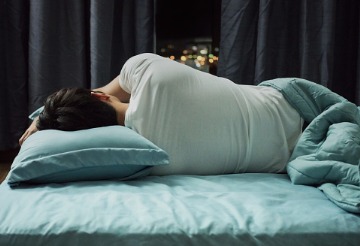Insomnia is an inability or delay in getting to sleep, or being unable to sleep for a suitable amount of time once you do drift off. Insomnia is the most common sleep complaint, with a higher rate of reported insomnia in women. Approximately one in three women suffer from insomnia at some point in their lives. This may be because women are more likely to get help for unsatisfactory sleep than men.
Insomnia seems to become more prevalent with increasing age, although children and adolescents can also be affected by it. It's frequently associated with mood disorders such as anxiety or depression, as well as other health conditions, stress, jet lag, high caffeine intake, and some medications as a possible side effect.






